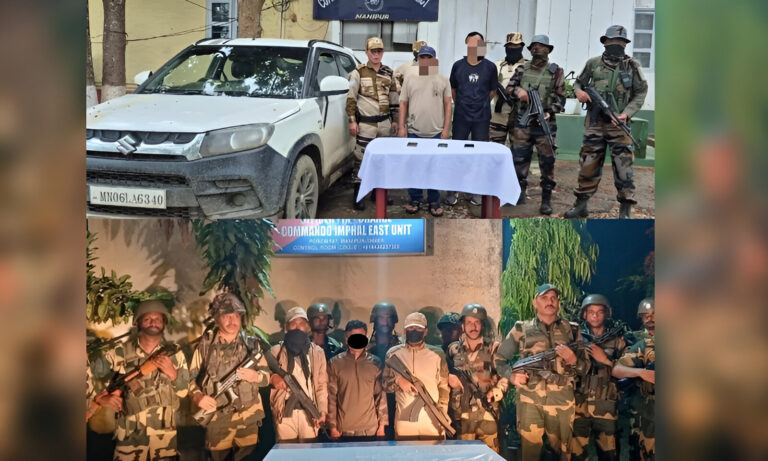AMMPACO Condemns Hostage-Taking as a Means to Meet Demands: A Deep Dive into the Crisis
Summary of the News
AMMPACO (All Manipur Muslim Pangal Political Awareness Committee) has strongly condemned the act of holding civilians hostage to push political or militant demands. They emphasized that using innocent lives as bargaining chips is a terrorist act, further destabilizing the region. The committee called for immediate resolution and the safe release of hostages, urging both state and non-state actors to prioritize humanity and peace.
Understanding the AMMPACO Condemnation and the Broader Conflict in Manipur
Introduction
When a group like AMMPACO, which is focused on political awareness and advocating for peace, steps forward to condemn an act of hostage-taking, it signals that things have gone too far. Hostage-taking as a tactic is not new in conflict zones, but the situation in Manipur is particularly sensitive due to the region’s history of ethnic, political, and militant clashes. AMMPACO’s strong stand against using innocent civilians as leverage for militant demands opens up a broader conversation about the moral and strategic implications of such acts.
This article will explore the current state of hostage-taking in Manipur, its impact on the civilian population, the broader political dynamics, and why AMMPACO’s call for peace is more critical than ever.
Hostage-Taking in Conflict Zones: A Global Perspective
A Cruel Tactic of War
Throughout history, hostage-taking has been used by various factions, especially in regions experiencing long-standing political or territorial conflicts. Whether it’s insurgent groups, militant organizations, or even state actors, the act of holding civilians as hostages sends a strong message: we are in control, and we are willing to go to any length to meet our demands.
But what does it mean for the people caught in this terrifying situation? For the families of the hostages, it’s a nightmare with no certainty of a happy ending. And for the larger community, it shakes the very foundations of trust and peace.
AMMPACO’s Outcry Against Hostage-Taking
AMMPACO’s condemnation isn’t just a reaction to a single event; it’s a reflection of the frustration and fear that have gripped the people of Manipur. By denouncing the hostage situation as an act of terror, AMMPACO is drawing a clear line between legitimate political struggles and tactics that cross moral boundaries. They call on all parties involved to focus on peaceful negotiations, without putting innocent lives at risk.
Manipur: A State Plagued by Conflict
A Brief Overview of Manipur’s Turbulent History
Manipur, located in the northeastern part of India, has a history of ethnic tensions and insurgencies. The state’s diverse population includes multiple ethnic groups with distinct cultural identities, often leading to clashes. Over the years, various insurgent groups have emerged, demanding autonomy or independence from the Indian government.
The state has seen intermittent violence, with militants using extortion, kidnappings, and sometimes even bombings to press their demands. Despite the Indian government’s efforts to curb these insurgencies, peace remains elusive.
Militancy and Its Impact on Civilians
The ongoing militancy in Manipur has had a devastating impact on the civilian population. From abductions to violence, civilians often find themselves caught in the crossfire. Schools are shut down, businesses are forced to close, and people live in constant fear of being targeted.
The latest wave of hostage-taking is just one more addition to the ever-growing list of atrocities civilians endure. AMMPACO’s statement points out how such acts deepen the mistrust between the government, security forces, and the people of Manipur.
The Government’s Response
The government’s response to insurgency in Manipur has primarily been a combination of military action and peace talks. However, the use of force alone hasn’t been enough to quell the unrest. The call for peace from civil groups like AMMPACO highlights the need for a more nuanced approach that involves dialogue and a deeper understanding of the region’s socio-political dynamics.
AMMPACO’s Role in Promoting Political Awareness
Who Are AMMPACO?
The All Manipur Muslim Pangal Political Awareness Committee (AMMPACO) represents the Muslim Pangal community in Manipur, which is a minority group in the state. Their focus has traditionally been on promoting political awareness and ensuring that the voice of their community is heard in the larger political discourse of the state. AMMPACO also plays a vital role in advocating for peace and ensuring that the rights of minorities are protected.
Why Is Their Condemnation Important?
When a group like AMMPACO speaks out against hostage-taking, it carries significant weight. Their condemnation is not just a call for the release of hostages but also a plea for peace in a region that has seen too much violence. They represent a community that has often been marginalized, and their voice adds a critical perspective to the broader debate about conflict and peace in Manipur.
Why Hostage-Taking Must Be Condemned by All Sides
The Moral Argument
Taking hostages, especially civilians, goes against the basic principles of humanity. Whether the perpetrators are insurgents, militants, or state actors, using innocent lives as pawns in political or territorial disputes is indefensible. AMMPACO’s call for the immediate release of hostages reflects a growing sentiment among many in Manipur: enough is enough.
The Strategic Argument
From a purely strategic perspective, hostage-taking often backfires. While it may initially garner attention, it ultimately alienates the perpetrators from the very people they claim to represent. In Manipur, where insurgent groups have historically drawn some support from local populations, such acts can lead to a loss of that support.
Additionally, hostage-taking can escalate conflicts, leading to a stronger military response from the government and further endangering civilians. By condemning these acts, AMMPACO is urging all parties to consider the long-term consequences of their actions.
The Path Forward: Dialogue Over Violence
The Need for Peace Talks
AMMPACO’s condemnation comes at a time when the need for dialogue has never been more critical. The people of Manipur are weary of conflict, and many are calling for a more peaceful resolution to the ongoing insurgencies. While peace talks have been attempted in the past, they often break down due to a lack of trust between the government and insurgent groups.
Building Trust Among Communities
One of the key challenges in resolving the conflict in Manipur is the deep mistrust between different ethnic communities. Hostage-taking only exacerbates these divisions, making it harder for peace to be achieved. Civil society organizations like AMMPACO play a crucial role in bridging these divides and promoting a culture of dialogue and mutual respect.
The Role of the Central Government
The central government has a significant role to play in resolving the conflict in Manipur. While military action may be necessary in some cases, it must be balanced with efforts to address the root causes of insurgency. Poverty, lack of development, and ethnic tensions all contribute to the unrest in the state. By addressing these issues through dialogue and development initiatives, the government can help bring about lasting peace.
Conclusion
The condemnation of hostage-taking by AMMPACO is a crucial moment in the ongoing conflict in Manipur. It serves as a reminder that, even in the midst of violence and unrest, there are voices calling for peace and humanity. As the people of Manipur continue to grapple with the effects of insurgency, it is essential for all parties to prioritize dialogue and find peaceful solutions to their grievances.
Hostage-taking is not the answer—it only deepens the wounds and prolongs the suffering. The path to peace is difficult, but it is the only path that can lead to a better future for Manipur.
FAQs
- What is AMMPACO?
AMMPACO stands for All Manipur Muslim Pangal Political Awareness Committee, an organization advocating for political awareness and peace in Manipur. - What did AMMPACO condemn?
AMMPACO condemned the act of holding civilians hostage by militants or insurgents to meet their demands, calling it an act of terrorism. - Why is hostage-taking a problem in Manipur?
Hostage-taking is often used by insurgent groups to push political or territorial demands, leading to fear and insecurity among civilians. - How has the government responded to insurgency in Manipur?
The government has primarily used military action to counter insurgency, but there are calls for more dialogue and peaceful resolutions to the conflict. - What is the role of civil society groups in Manipur?
Civil society groups like AMMPACO play a vital role in promoting peace, political awareness, and advocating for the rights of minorities in Manipur.

